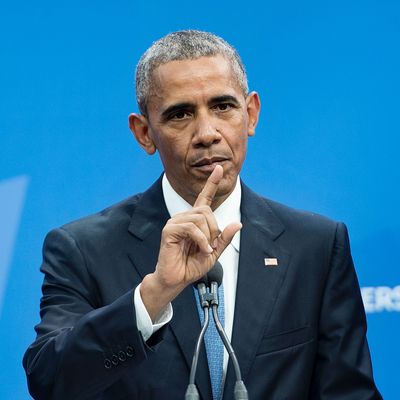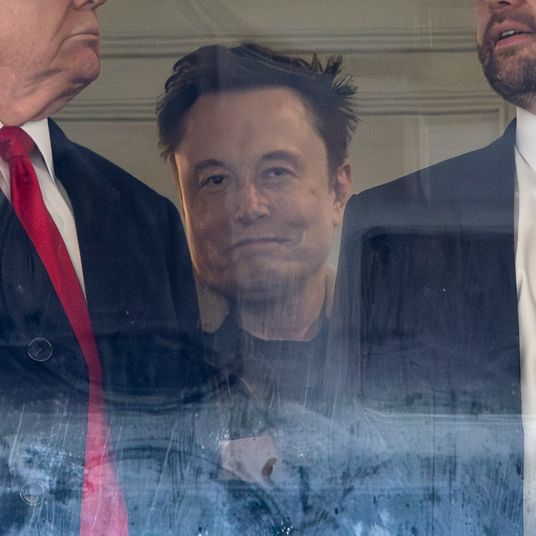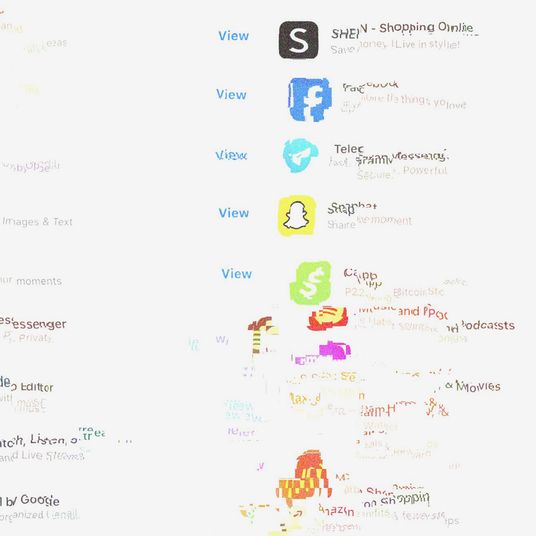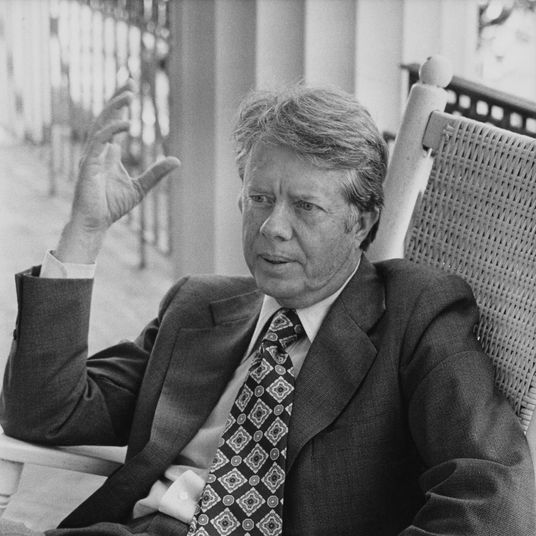
President Obama, who will finally make his first appearance on the 2016 campaign trail at a Hillary Clinton event in North Carolina on Tuesday, previewed his case against Donald Trump yesterday in a self-described “rant” challenging the use of the term “populist” to describe the presumptive GOP nominee (who he never mentioned by name).
“I’m not prepared to concede the notion that some of the rhetoric that’s been popping up is populist,” Obama said after hearing many Trump-related questions during a press conference with Canadian prime minister Justin Trudeau and Mexican president Enrique Peña Nieto in Ottawa. Obama suggested that someone look up the term in a dictionary, then launched into his own six-minute explanation of why someone who’s “worked against economic opportunity for workers and ordinary people” can’t morph into a man of the people over the course of a few months. “They don’t suddenly become a populist because they say something controversial in order to win votes,” the president said. “That’s not the measure of populism. That’s nativism, or xenophobia, or worse. Or it’s just cynicism.”
Obama said that throughout his career he’s shown he genuinely cares about issues like educating poor kids, making sure everyone has access to health care, and ensuring fairness in the U.S. tax system. “I suppose that makes me a populist,” he said. He also acknowledged that Bernie Sanders “genuinely deserve[s] the title since he has been in the vineyards fighting.”
But as for Trump, “Let’s just be clear: Somebody who labels ‘us versus them’ or engaged in rhetoric about how we’re going to look after ourselves and take it to the other guy, that’s not the definition of populism. Sorry.”
Since Obama asked, Trump’s general rhetoric does fit Merriam-Webster’s definition of populism: “a member of a political party claiming to represent the common people” or “a believer in the rights, wisdom, or virtues of the common people.” Journalists aren’t wrong to describe Trump as a populist, but the president’s broader point about Trump’s disingenuousness still stands. The billionaire real-estate mogul whose merchandise is made overseas does not have a long history of fighting for the common man. As New York’s Jonathan Chait noted, when Trump’s campaign launched last summer he was more interested in attacking Mexicans than the elites — who, as we now know, are so unfair to him and his working-class supporters:
Trump’s campaign initially emphasized his nativist position on immigration, which caused him to be identified with the Republican right. But Trump has repositioned himself increasingly as the candidate of the populist, disaffected center. Even though Trump has proposed a huge tax cut for the rich, he draws support from Republican voters who are most heavily in favor of raising taxes on the rich. (They have no other candidates to choose from within their party.)
Trump’s populism has slowly intensified. “I don’t get along that well with the rich. I don’t even like the rich people very much,” he recently said. “It’s like a weird deal.”
Obama is not the first to take issue with both Trump and Sanders being described as populists. In a recent New York Times Magazine piece, Michael Kazin explained that the term has evolved considerably since it was coined to describe the left-wing People’s Party of the 1890s. In the last five decades, it’s been applied to a wide variety of figures across the political spectrum, from George Wallace to George McGovern to Pat Buchanan. The original Populists might embrace Sanders, but certainly not Trump. Kazin writes:
The 19th-century antecedent that Trump evokes in his nativist appeals to white working- and middle-class Americans is not the populism of the People’s Party but rather that of the Know-Nothing Party of the 1850s, which similarly argued that immigrants were taking Americans’ jobs and breaking the nation’s laws. Trump’s “populism” is a brilliant specimen of performance art but one that bears little resemblance, even in style, to the capital-P kind. The earnest activists from the People’s Party of old brandished a lengthy blueprint for reform; Trump’s personality overshadows his program. His canny lack of finesse finesses us all.
A lengthy discussion of why Trump’s ideas aren’t truly populist may get Obama supporters fired up, but it’s probably not going to be an effective line of attack against Trump. Wednesday on The O’Reilly Factor, Trump was shown a clip of Clinton decrying “the xenophobia, the misogyny, the homophobia, the Islamophobia … that Trump uses to create that fervor among a lot of his supporters.” He responded, “All of the phobias that nobody even knows what she is talking about, to be honest with you,” stressing, “nobody even knows what she is talking about.”
Someone should probably fill him in on what Islamophobia means before getting into his connection to the Know-Nothing Party.






























